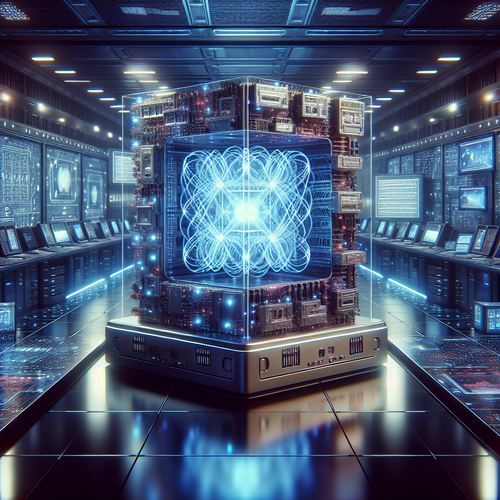
Decoding Quantum Computing: The Next Big Leap
Quantum Computing: Pioneering the Future of Computation
Quantum computing, a groundbreaking technology that leverages principles of quantum mechanics, is set to redefine the frontiers of computational power. This post will explain quantum computing, distinguish it from classical computing, and explore its future prospects.
Understanding Quantum Computing
Quantum computing is a type of computation that harnesses the behavior of quantum particles to conduct complex calculations at extraordinary speeds. It leverages qubits, which, in contrast to the bits in classical computers, can exist in both 0 and 1 states simultaneously – a property known as superposition.
Quantum vs Classical Computing
Quantum computing differs fundamentally from classical computing:
- Qubits vs Bits: While classical bits can be either 0 or 1, qubits exist in a superposition of states, leading to greater computational complexity.
- Speed: Quantum computers can process large volumes of data simultaneously, making them exponentially faster than classical computers for specific tasks.
- Information Density: Thanks to entanglement, a quantum phenomenon, a pair of qubits can hold more information than a pair of classical bits.
The Potential of Quantum Computing
There’s a vast potential in quantum computing that could revolutionize several sectors:
- Cryptography: Quantum computers can potentially crack codes and encrypt data more securely.
- Drug Discovery: Through modelling complex molecular structures, quantum computing may accelerate drug discovery.
- Climate Modeling: Quantum computers could better analyze and predict climate patterns, improving forecast accuracy.
Conclusion
Quantum computing promises to usher in a new era of computational power, capable of tackling complex problems beyond the reach of classical machines. As we stand on the brink of this quantum revolution, it’s clear that this technology could redefine our approach to problem-solving and radically transform our future.













